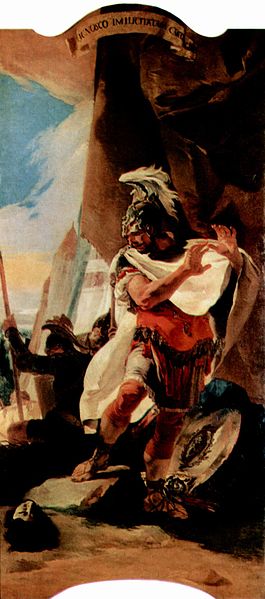Nepos, Life of Hannibal — Chapter 5: The End of Hannibal’s Campaign in Italy (218–203 BC)
After Hannibal's wild success in the first years of the war, the Romans avoided set battles on terrain where Hannibal’s superior cavalry could produce the kind of devastating losses that were seen at Trebia and Cannae. Fabius’ strategy of harassment and delay would prove sound. By avoiding a disastrous defeat that would provoke further defections to Hannibal, Rome gained the time to wear down Hannibal’s army and retake rebel cities throughout Samnium and Liguria.
By 211 BC, Rome was able to field 25 legions while its fleet raided Africa. In the same year Rome recaptured Syracuse and Capua, depriving Hannibal of vital bases of operations and destroying his credibility as a reliable ally against Roman aggression. Rome executed the leaders of Capua and sold many Capuan men, women, and children into slavery; those who survived were stripped of their citizenship and sent into exile. The example had been made: no further cities defected to Hannibal's side.
Hannibal and his lieutenants were still capable of overpowering small forces of Romans, ravishing the Italian countryside, capturing the occasional city, and inflicting the rare larger defeat, as when Roman armies were destroyed at Herdonea in 212 BC and again in 210. For the most part, however, the Romans did avoid set battles and Hannibal was thus denied a decisive victory that would compel the Romans to sue for peace. Hannibal's strategic situation continued to darken during the next few years: Fabius retook the vital port of Tarentum in 209 BC; Sicily was pacified; and any hope of reinforcement from Philip in Greece was removed. Hannibal was increasing confined to the south of Italy.

